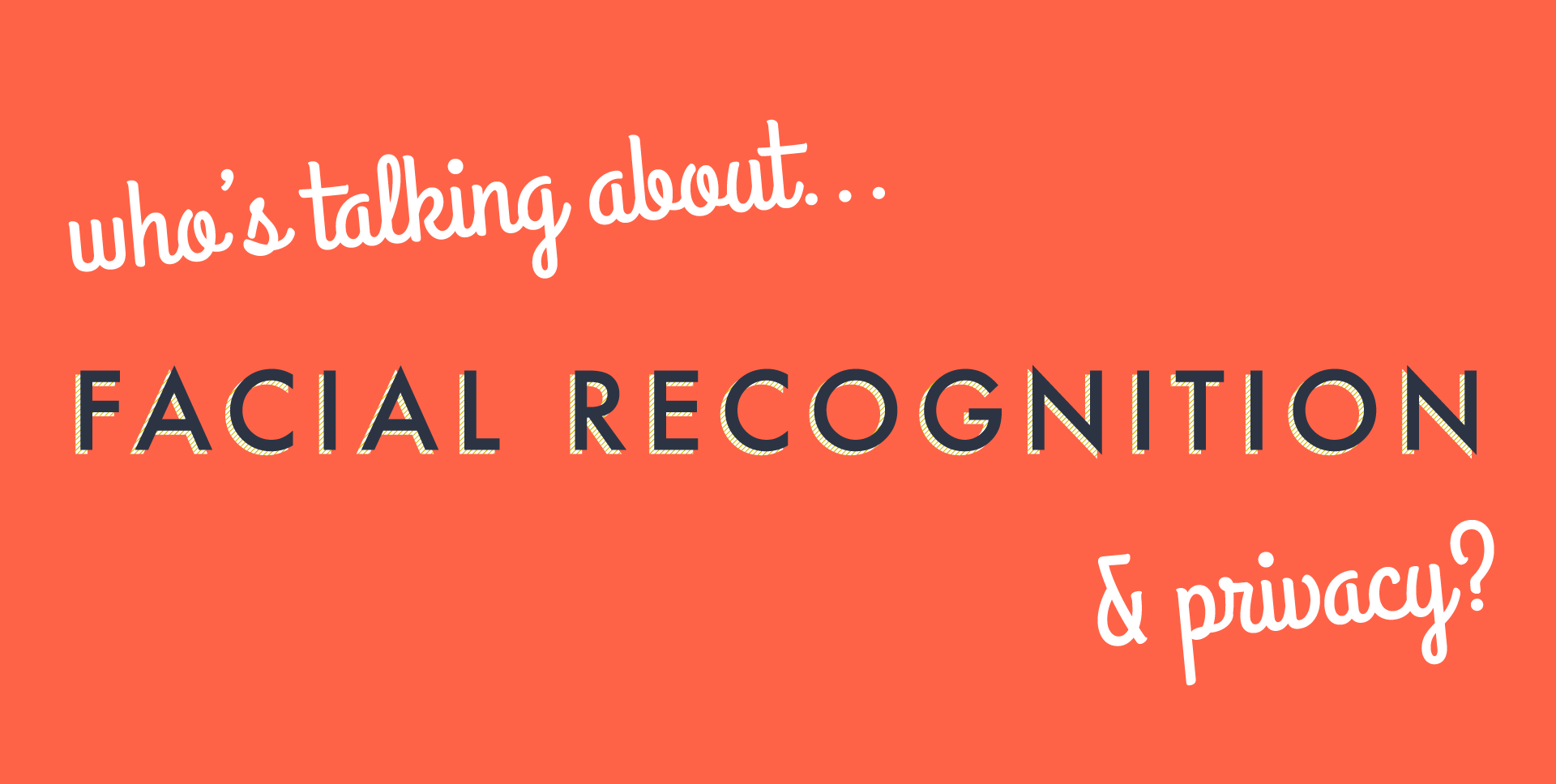The biggest news in the facial recognition industry this month has been the walkout from the ongoing facial recognition privacy talks by the nine consumer/privacy representatives. While the media has widely reported the walkout, as in this New York Times article, often quoting from the privacy advocates' press statements, there has been little public comment from members of the facial recognition industry. As a strong supporter of these talks, we at Kairos would like to share our viewpoint.
What are These Facial Recognition Privacy talks?
Over the last 16 months the National Telecommunications & Information Administration (NTIA), a division of the United States Commerce Department, has been hosting both facial recognition industry representatives, and delegates representing consumer and privacy groups. They have been working to come up with a voluntary agreement on how facial recognition data should be collected and used. The talks are known as the Privacy Multistakeholder Process: Facial Recognition Technology.
This process led by the NTIA has nothing to do with government collection and use of facial recognition data. These talks are designed to come up with a set of voluntary guidelines that commercial facial recognition companies could choose to adhere to or not. It is important to remember that any decisions from the talks led by the NTIA do not have jurisdiction for anything involving the federal government, law enforcement, military, etc.
The agreement envisaged by these talks is more akin to the voluntary privacy standards that companies on the web agree to on their own. Once they do publicly agree to abide by a standard, if they violate their own policy, they are subject to sanction by the FTC. The idea is that the working group will come up with something that the industry will volunteer for, giving some level of protection to consumers.
Who Walked Out From These Talks, and Why?
There are nine groups representing consumers and privacy advocates involved in the talks. They are the American Civil Liberties Union, Center for Democracy & Technology, Center for Digital Democracy, Alvaro M. Bedoya (the executive director of the Center on Privacy & Technology at Georgetown University Law Center), Consumer Action, Consumer Federation of America, Consumer Watchdog, Common Sense Media, and the Electronic Frontier Foundation.
They set themselves a bottom line that companies should seek and obtain permission before employing facial recognition to identify individual people in public spaces. They believe, as do we at Kairos, "at a base minimum, people should be able to walk down a public street without fear that companies they’ve never heard of are tracking their every movement – and identifying them by name – using facial recognition technology".
They want assurance that a person has full knowledge of how facial recognition will be used and that they will give meaningful prior consent. The prior consent is the main sticking point that caused the walkout.
What is the Kairos View?
Our view is “We LOVE the talks”. We LOVE that we are working through the tough questions. We think that given Congress’s current makeup, binding rules will not be applied, and that this is an area that the United States will need to lead, to drive meaningful change.
We believe that all parties can find a path forward, but it’s going to take FULL participation and a commitment to a shared goal. Walking out of the process has been harmful to that reality.
We strongly value the contributions that the privacy groups have made to date. We think that these privacy groups are the protectors at the gate for all of us, and we want them to be part of the talks. We are people too, and we want our own privacy to be protected.
We believe the NTIA does an outstanding job in its attempt to bring this process together. They organize the sessions and bring in numerous speakers from both sides, as well as from the education and research sectors. It always feels deliberately inclusive. We enjoy working with John Verdi, Director of Privacy Initiatives, at the NTIA, who is tasked with the difficult job of “herding cats together”, which he does admirably with grace.
Is There Still a Future For the Talks?
Juliana Gruenwald, an NTIA spokesperson, is quoted in the New York Times article linked above as saying that she thinks the decision to walk away from the table will hurt the interest groups’ cause more than help it. Their departure is not going to halt the talks. Industry groups still intend to continue to pursue a workable code of conduct for facial recognition privacy, whether the consumer groups participate in the discussions or not.
Even if there is no consensus on the pivotal area of consent by those being observed, there are still areas where the stakeholders should be able to reach an agreement such as transparency, notifications, and data security.
Alas, if the privacy groups are not present for future discussions, there is a danger that any future agreement will lack the checks and balances that the privacy groups have been there to provide.
Conclusion
It is a pity that the walkout by some of the participants has disrupted the real focus and purpose of the talks. The talks have never had a significant focus of discussion in the media, and now they have concentrated on the wrong thing - the walkout, rather than the genuine issues involved. There are many valuable and helpful uses for this technology, that are in danger of being overlooked because of the media focus on privacy threats. Discussion needs to move away from potential threats of Big Brother tracking your every movement, to showing how we can use the technology to better society.
At Kairos we are not against the concept of people having to opt in to using facial recognition in most circumstances, certainly in the commercial and retail situations that are the focus of these talks. We do feel that there are a few situations, for example with child trafficking (using the Helping Faceless app), where there are practical reasons when it is not feasible to get opt-in consent.
It is unfortunate that the privacy advocates will not be able to present their case for change if they are not present at future discussion meetings. Lines in the sand and entrenched bottom lines are never lead to genuine, meaningful discussion and agreements; only compromise, empathy and understanding does.
While we are disappointed that some important parties left the table, we are still wholeheartedly supporting the efforts, and we look forward to opting into a new standard. The multi-stakeholder process is inherently tricky, but we believe good people, with a little trust, a little compromise, and the best intentions, can overcome any hurdle. We would love to see the door left open for the privacy groups’ return.
At Kairos, we have found this process to be incredibly valuable. We welcome the opportunity to create a framework that can shine a light on those in our industry who do not put the level of importance on privacy that we believe is necessary. Privacy and commerce do not have to be exclusive. There is a way for all parties to win. We firmly believe in the individual, and yet we are a commercial enterprise. How? By focusing on outcomes and not transactions. We want people to have better experiences. For Kairos, serving people is the end goal, not making products out of them. We believe in humanity and privacy, and that we can still grow a viable business around it.

Brian Brackeen
Brian is the CEO at Kairos, a Human Analytics platform that radically changes how companies understand people.
